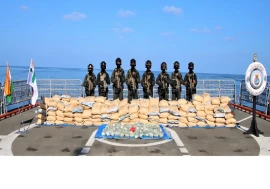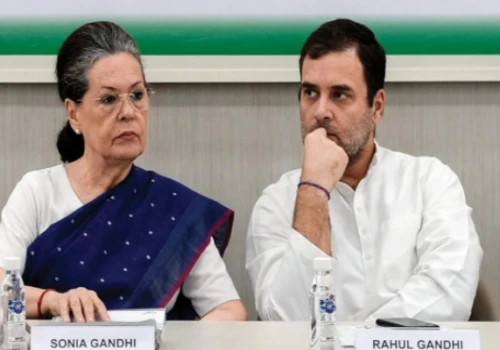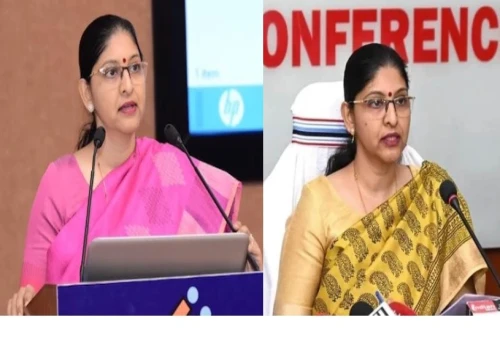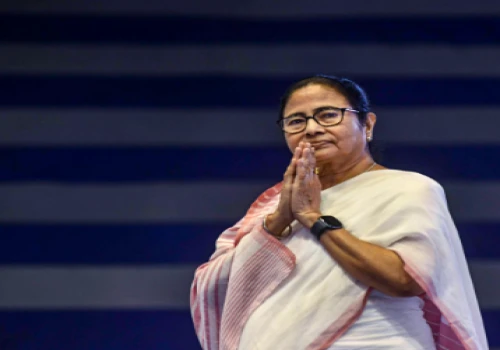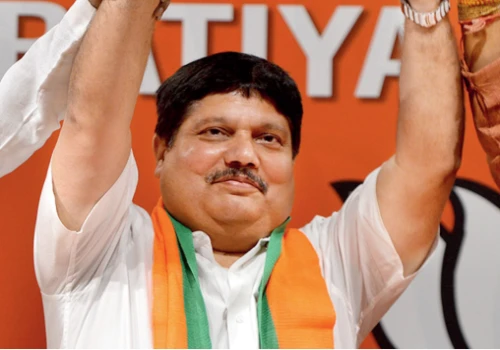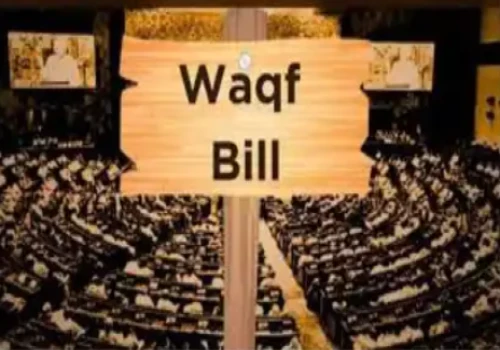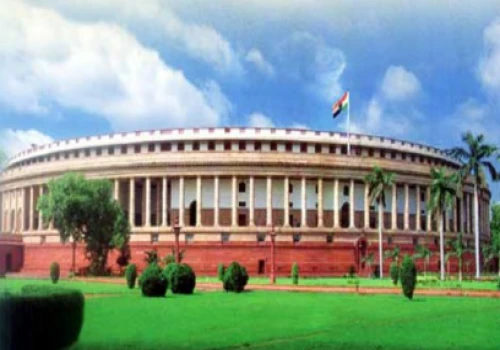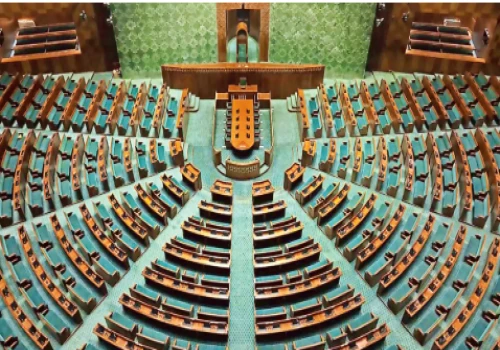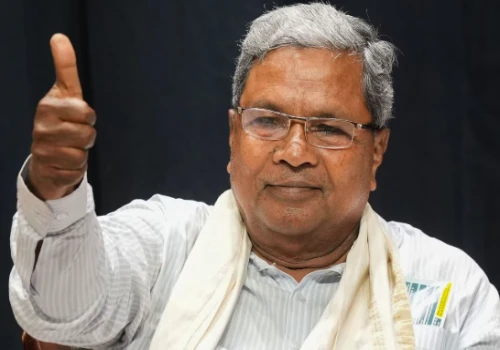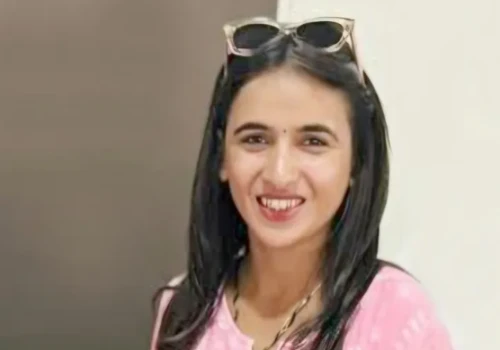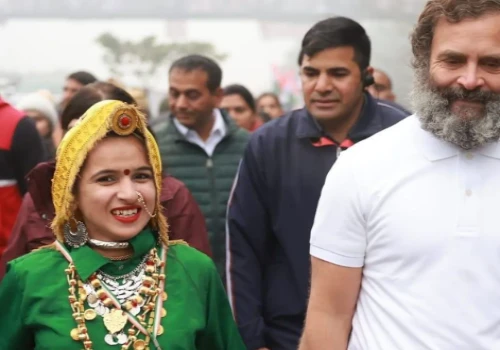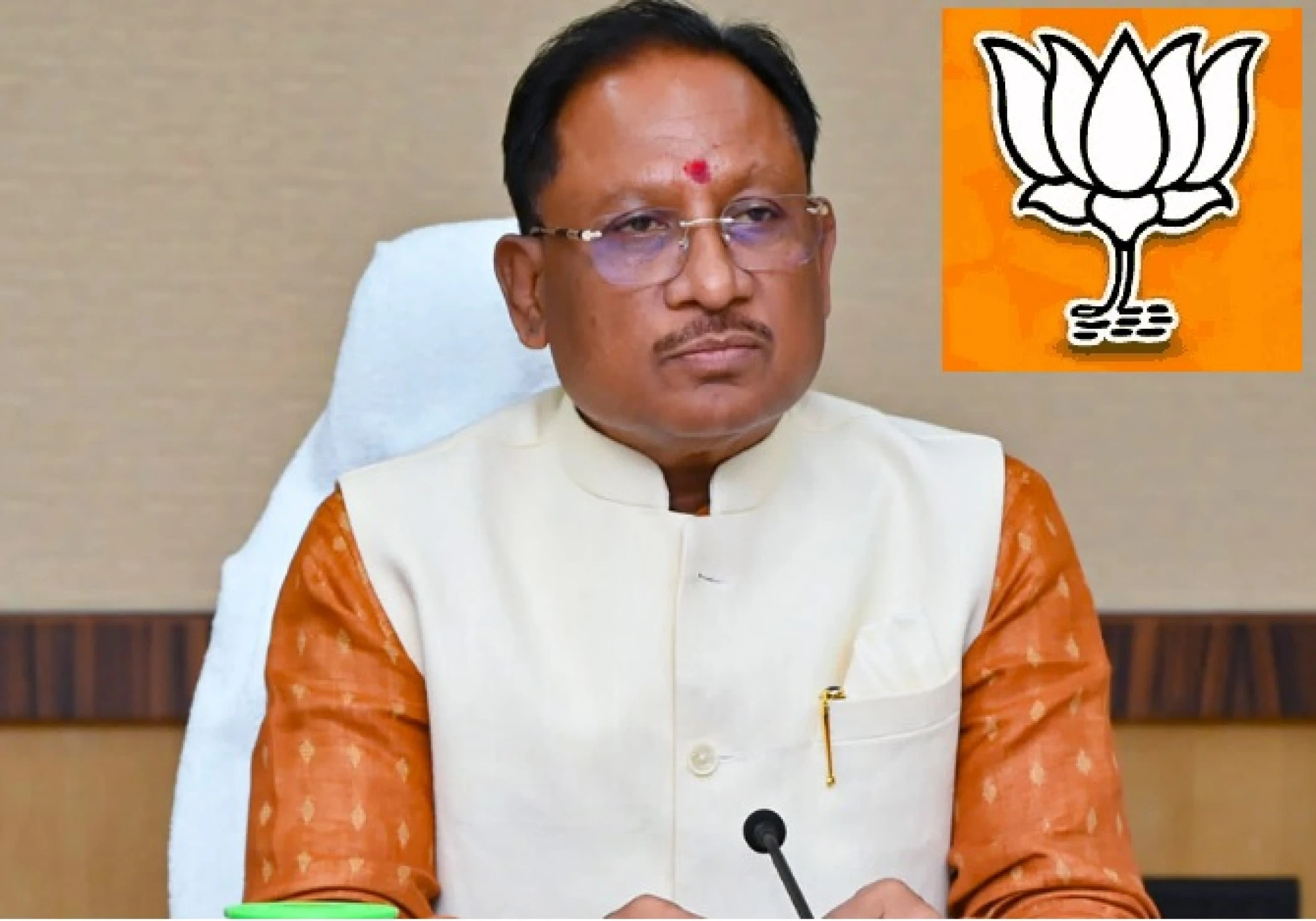
Vishnu Deo Sai is a prominent figure in Indian politics, serving as the Chief Minister of Chhattisgarh and recognized as a senior tribal leader in Central India. The day of his oath-taking, December 13, 2023, marked a significant milestone, as he officially became Chhattisgarh's first tribal Chief Minister. Sai is the member of Bharatiya Janata Party (BJP) and Rashtriya Swayamsevak Sangh (RSS).
Regarded as a compassionate and efficient administrator, Sai is known for his decisive approach in addressing public welfare issues. His dedication extends beyond Chhattisgarh, as he has actively engaged with tribal concerns in states including Madhya Pradesh, Odisha, Telangana, and Maharashtra.
Early Life and Background
Vishnu Deo Sai was born on February 21, 1964, in the village of Bagiya, located in the Farsabahar development block of Jashpur district, Chhattisgarh. His father, the late Shri Ramprasad Sai, and mother, Smt. Jasmani Devi Sai, raised him in this rural setting.
His educational journey led him through higher secondary schooling in Kunkuri, within the Jashpur district. Hailing from the tribal Kanwar community, Sai's roots are deeply embedded in agriculture, with a family lineage entrenched in politics. He draws inspiration from his late uncles, Narhari Prasad Sai and Kedarnath Sai, both esteemed politicians. Narhari Prasad Sai served as an MLA from the Lailunga Assembly Constituency from 1962 to 1967 and from the Bagicha Assembly Constituency from 1972 to 1977. Later, he held the position of Member of Parliament and Union Minister of State for Communications from 1977 to 1979. Kedarnath Sai represented the Tapkara Assembly Constituency during the Jan Sangh era from 1967 to 1972. Additionally, Sai's grandfather, the late Budhnath Sai, established a political legacy as an MLA from 1947 to 1952.
On May 27, 1991, Vishnu Deo Sai entered into marriage with Kaushalya Devi Sai, with whom he shares a family consisting of one son and two daughters.
Beyond politics, Sai has actively engaged in social work, particularly focused on tribal education and the development of essential infrastructure in tribal regions. He has been a consistent advocate for improving the living standards of backward tribes, reflecting a deep-rooted commitment to social welfare. Known for his reverence for Lord Shri Ram, Sai staunchly opposes conversions through compulsion or deception.
The Intersection of Education and Hardship: How Sai Triumphed Against Odds
Chief Minister Vishnu Deo Sai pursued his education up to the Higher Secondary level. Unfortunately, his father passed away when he was in the fourth standard, leaving him with the responsibility of supporting his mother, Jasmani Devi, and his two younger brothers, Om Prakash Sai and Vinod Sai. Following his Higher Secondary education, he was unable to continue his studies further and instead took up agriculture to provide for his family.
During this period, he became familiar with Late Dilip Singh Judeo, a prominent leader of the Bharatiya Janata Party and then Member of Parliament. Vishnu Deo Sai regards Late Dilip Singh Judeo as his political mentor and guide.
Political Journey
Sai's political journey began modestly, serving as a Panch of Bagiya Gram Panchayat in the undivided Madhya Pradesh in 1989. His leadership abilities soon led to his unanimous election as the Sarpanch of Gram Panchayat Bagiya in 1990. He entered legislative politics the same year, securing the MLA seat from the Tapkara Assembly constituency.
Continuing his political ascent, Sai served as MLA for two consecutive terms from 1990 to 1998. He then transitioned to national politics, winning the Raigarh Lok Sabha constituency seat for four consecutive terms, starting from 1999. Sai's contributions were notable during his tenures as a member of the 13th, 14th, 15th, and 16th Lok Sabha, spanning from 1999 to 2014. Sai's commitment to public service extended to ministerial roles, where he efficiently managed the Ministry of Steel, Mines, Labour, and Employment as Union Minister of State from May 27, 2014, until 2019.
Acknowledged for his leadership within the BJP, Sai was appointed as the Chhattisgarh State President of the party in 2006 and later resumed this role from 2020 to 2022. On December 2, 2022, he was appointed as a special invitee member of the BJP National Working Committee. Later, on July 8, 2023, he was promoted to a full member of the National Working Committee of the BJP.
On 13th of December 2023, Vishnu Deo Sai took the oath of office as the Chief Minister of Chhattisgarh. Additionally, Arun Sao and Vijay Sharma were chosen to the positions of Deputy Chief Ministers of Chhattisgarh.
Political Milestones
- 1990-98: Member, Madhya Pradesh Legislative Assembly (two terms)
- 1999: Elected to 13th Lok Sabha
- 1999-2000 : Member, Committee on Absence of Members from the sittings of the House and Member, Committee on Food, Civil Supplies and Public Distribution
- 2000-2004: Member, Consultative Committee, Ministry of Agriculture
- 2004: Re-elected to 14th Lok Sabha (2nd term), Member, Committee on Information Technology
- 5 August 2007: Member, Committee on Water Resources
- 2009: Re-elected to 15th Lok Sabha (3rd term)
- 31 August 2009 : Member, Committee on Commerce
- 2014 : Re-elected to 16th Lok Sabha (4th term)
- 9 November 2014: Union Minister of State for Mines, Steel
- 5 July 2016 : Union Minister of State, Ministry of Steel
- 3 December 2023 : Member, Chhattisgarh Legislative Assembly
- 10 December 2023 : Chief Minister of Chhattisgarh
Vishnu Deo Sai's Role in Kanwar Community Development
Vishnu Deo Sai is a prominent figure within the Kanwar community of Chhattisgarh, serving as a widely respected guide. Alongside Sai, his wife Kaushalya Sai actively contributes to the advancement of the Kanwar community. The Kanwar tribe boasts a substantial population in Northern Chhattisgarh, with members residing across all six districts of the Surguja division, as well as in Bilaspur, Korba, Raigarh, and Janjgir districts. Vishnu Deo Sai has played an instrumental role in promoting educational awareness within the Kanwar community.
Vishnu Deo Sai's Strong Stance against Naxalism
Since assuming the role of Chief Minister of Chhattisgarh, Vishnu Deo Sai has swiftly implemented numerous decisive measures for public welfare, profoundly impacting both the state and national political landscape. In tackling the longstanding issue of Naxalism in Chhattisgarh, Sai has employed a strategy of "Boli ka Jawab Boli Se aur Goli ka Jawab Goli" (dialogue for dialogue, and bullet for bullet). Within a mere four months of his tenure, security forces engaged in multiple encounters with Maoists in Bastar, resulting in the killing of over 100 Naxalites, including several high-profile leaders with substantial bounties on their heads. Notably, a large number of Maoists and their supporters have surrendered, drawn by the rehabilitation policies of the Chhattisgarh Government. Concurrently, the Vishnu Deo Sai government has significantly increased the number of security camps in Bastar. The "Niyad Nellnar" scheme has been initiated to foster Bastar's development through these security camps, ensuring that villages within a five-kilometer radius receive the benefits of various Central and State Government schemes, thereby promoting comprehensive community development.
Commitment to Establish Good Governance
In its commitment to establishing good governance in Chhattisgarh, the Vishnu Deo Sai government has taken consistent action against corruption. Numerous cases of corruption alleged to have occurred during the tenure of the previous Congress government are being swiftly investigated. These cases involve a range of scandals, including those related to coal, liquor, sand, teacher recruitment, PSC recruitment, and the Mahadev app. The involvement of key political figures from the Congress party in these scandals has garnered national attention, placing these cases in the spotlight on a broader scale.
Several Major Steps Taken in a Short Span of Time
The Vishnu Deo Sai government has swiftly fulfilled the guarantees of Prime Minister Narendra Modi to the people of Chhattisgarh. The government has ensured timely completion of the maximum of the guarantees.
In compliance to the Prime Minister's guarantee, the construction of permanent housing under the Pradhan Mantri Awas Yojana has commenced for over 1.8 million poor families in the state.
On Good Governance Day, December 25, 2023, the state government transferred an amount of ₹3,716 crore as two years' pending bonus into the bank accounts of 1.3 million farmers, thus fulfilling the guarantee.
Under the Krishak Unnati Yojana in Chhattisgarh, the Vishnu Deo Sai government has fulfilled the guarantee by procuring paddy from farmers at a rate of ₹3,100 per quintal and a limit of 21 quintals per acre. In the year 2023-24, a record procurement of 14.492 lakh metric tons of paddy was achieved from 24 lakh 75 thousand farmers in the state. Amounts of ₹31,913 crore as support price and ₹13,320 crore as differential amount have also been released.
For the socio-economic empowerment of women in the state, the Vishnu Deo Sai government has launched 'Mahatari Vandan Yojana'. Under this scheme, more than 70 lakh women in the state are being provided an amount of ₹1,000 each month into their bank accounts.
The Vishnu Deo Sai government has also initiated 'Shri Ramlala Ayodhya Dham' Darshan Yojana in Chhattisgarh. This scheme provides free pilgrimage tours to Ayodhya for the devotees in the state.
With the hike in remuneration rate for tendupatta collection from ₹4,000 per standard bag to ₹5,500 per standard bag, Vishnu Deo Sai government has benefited 12 lakh 50 thousand families engaged in tendupatta collection.
On the lines of Prime Minister Narendra Modi's call to build 'Developed India', the Vishnu Deo Sai government has set a goal to build 'Developed Chhattisgarh'. In the same sequence, state government is preparing a vision document titled "Amritkal Chhattisgarh Vision @2047." This vision document is planned to be launched on the state's foundation day, November 1, 2024.

